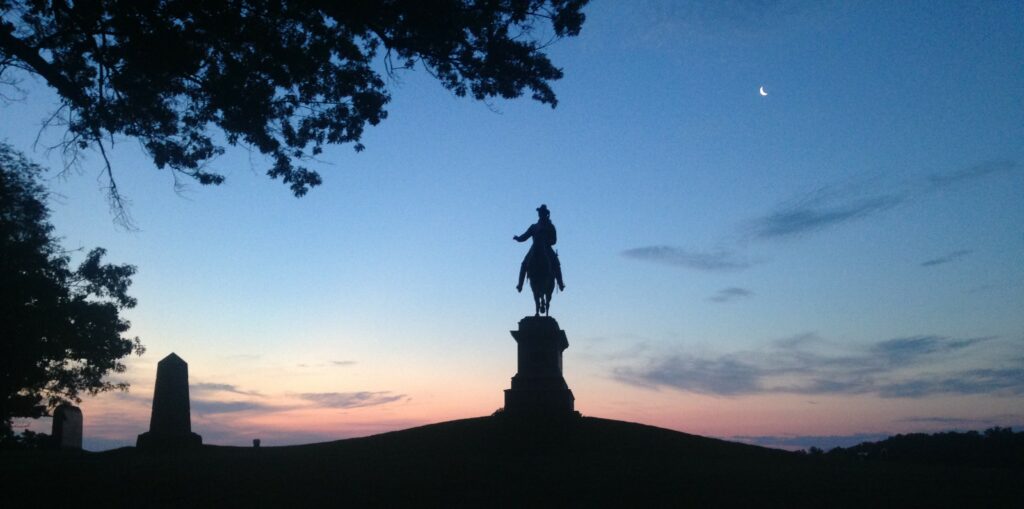I am available to speak to community groups, Civil War roundtables, and other organizations or events on the topics below. Additionally, for the people I portray as a living historian, I can appear in the the first person or the third person. The two people I portray are Albert Myer and Winfield Scott Hancock. Please contact me for availability and to make arrangements for an appearance.
Upcoming Talks & Events
- Colonel Albert Myer, Founder of the Signal Corps, Chicago Civil War Roundtable, January 2025
- Colonel Albert Myer, Founder of the Signal Corps, Milwaukee Civil War Roundtable, January 2025
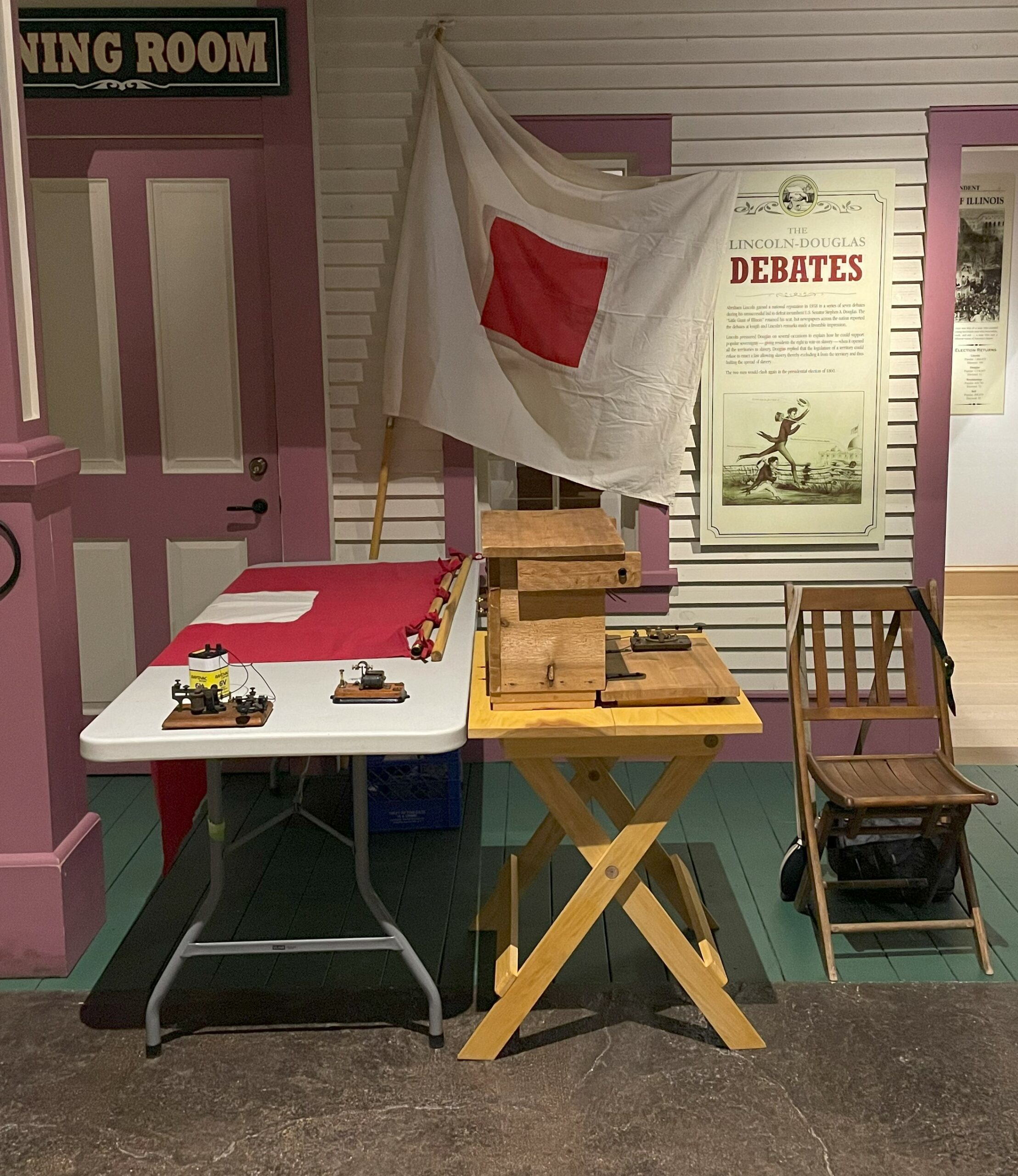
two signal flags, and a sample telegraph for people to try.
Past Talks & Living History Events
- Albert Myer & the Signal Corps (Living History), Civil War Medical Weekend, Kenosha Civil War Museum, WI, December 2023
- Major General Winfield Scott Hancock: The People’s Soldier, Fort Dearborn Chapter SAR, Chicago, IL, January 2024
- Albert Myer & the Signal Corps (Living History), Victorian Christmas, Kenosha Civil War Museum, WI, December 2023
- Albert Myer & the Signal Corps (Living History), 162nd First Manassas Battle Anniversary, Manassas National Battlefield Park, Manassas, VA, July 2023
Talk Topics
- Albert J. Myer
- Colonel Albert Myer, Founder of the Signal Corps
- “Old Probabilities”: Founding the United States Weather Bureau
- Signaling the Future: The Origin of Aerial Telegraphy & “Wigwag”
- Winfield Scott Hancock
- Major General Winfield Scott Hancock: The People’s Soldier
- Civil War Signal Corps
- Modern Communications: The Union Signal Corps in the Civil War
- “Look out for your left, your position is turned”: The Confederate Signal Corps in the Civil War
- Henry Knox
- Henry Knox, Father of the US Field Artillery
Albert Myer, Founder of the Signal Corps
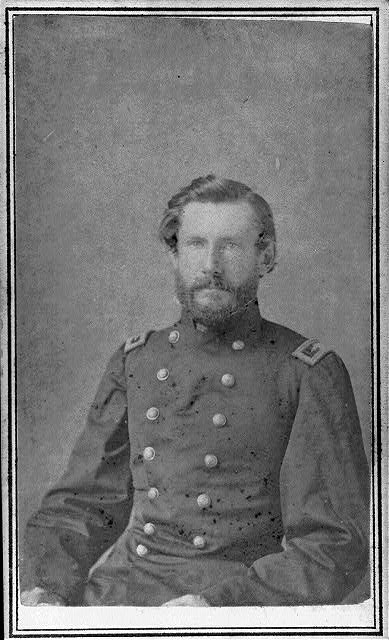
Photo Credit: Library of Congress
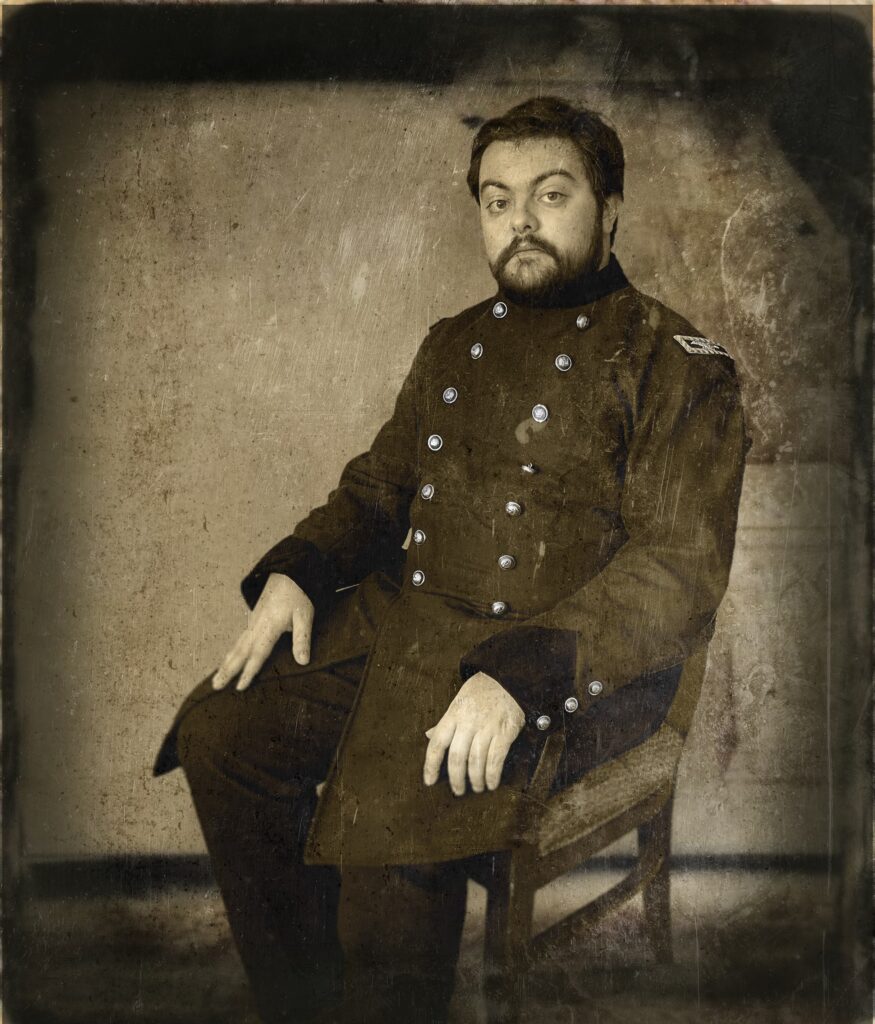
The first person that I portray is Albert J. Myer. He was born in 1828. He was a career officer in the US Army who entered the Army as a surgeon in 1854. He invented a system of signaling called aerial telegraphy, more commonly known as wigwag, and used this to system to found the United States Signal Corps in 1860. During the Civil War, he grew this branch of the military from himself to almost 1500 people. After the war, he remained in the position of Chief Signal Officer of the Army until his death in 1880. During this time, he expanded the duties of the Signal Corps to include weather prediction. With this duty, he founded the US Weather Bureau. He is buried in Buffalo, NY.
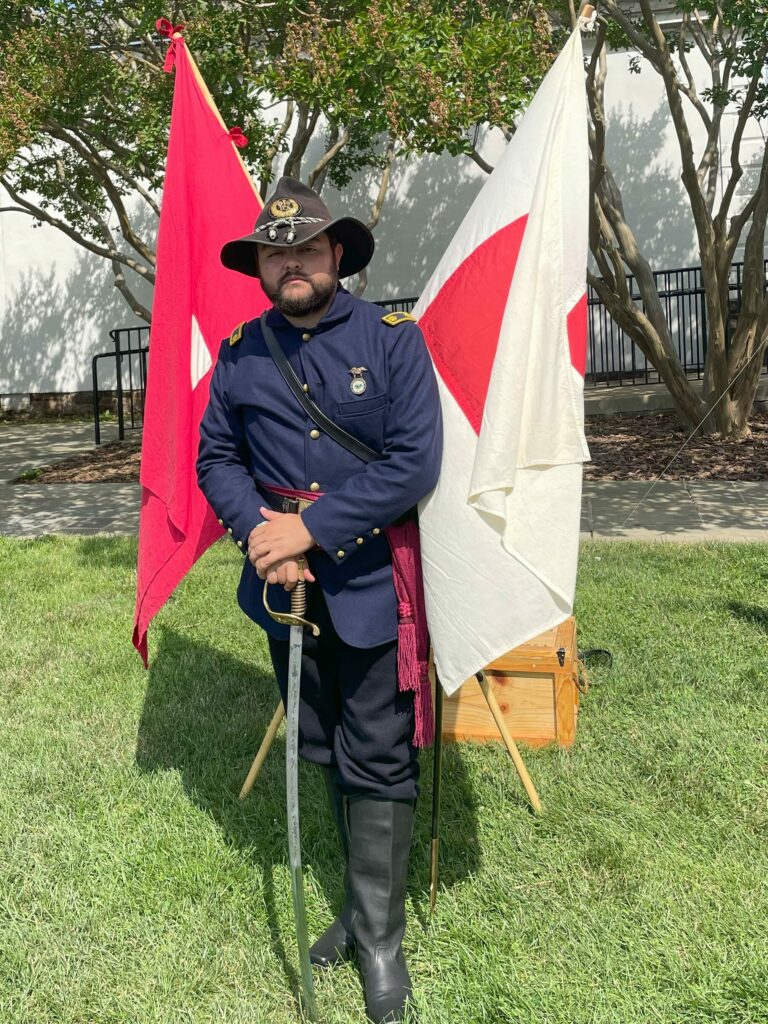
I enjoy portraying Myer because he allows me to do two things. First, his story is largely untold from the American Civil War. Second, it allows me to talk about the untold story of the Signal Corps during the Civil War. Many Civil War buffs do not know the story of Myer and the Signal Corps. Myer proudly wrote of the service that the Signal Corps performed during the Civil War, and by portraying Myer and the Signal Corps, I get to keep those stories alive.
I portray Myer in the Confederation of Union Generals. We are a first-person presentation group that seeks to educate the public. For more biographical information about Albert Myer, please see my page on our website.
Winfield S. Hancock: the People’s Soldier
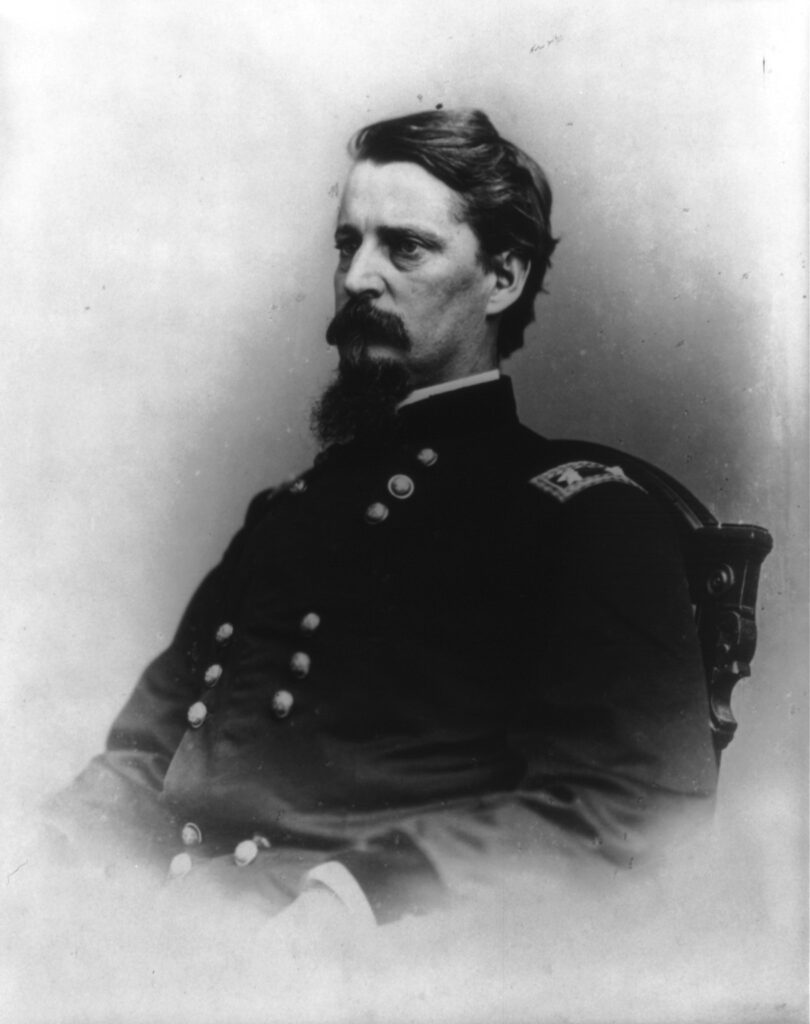
Photo Credit: Library of Congress
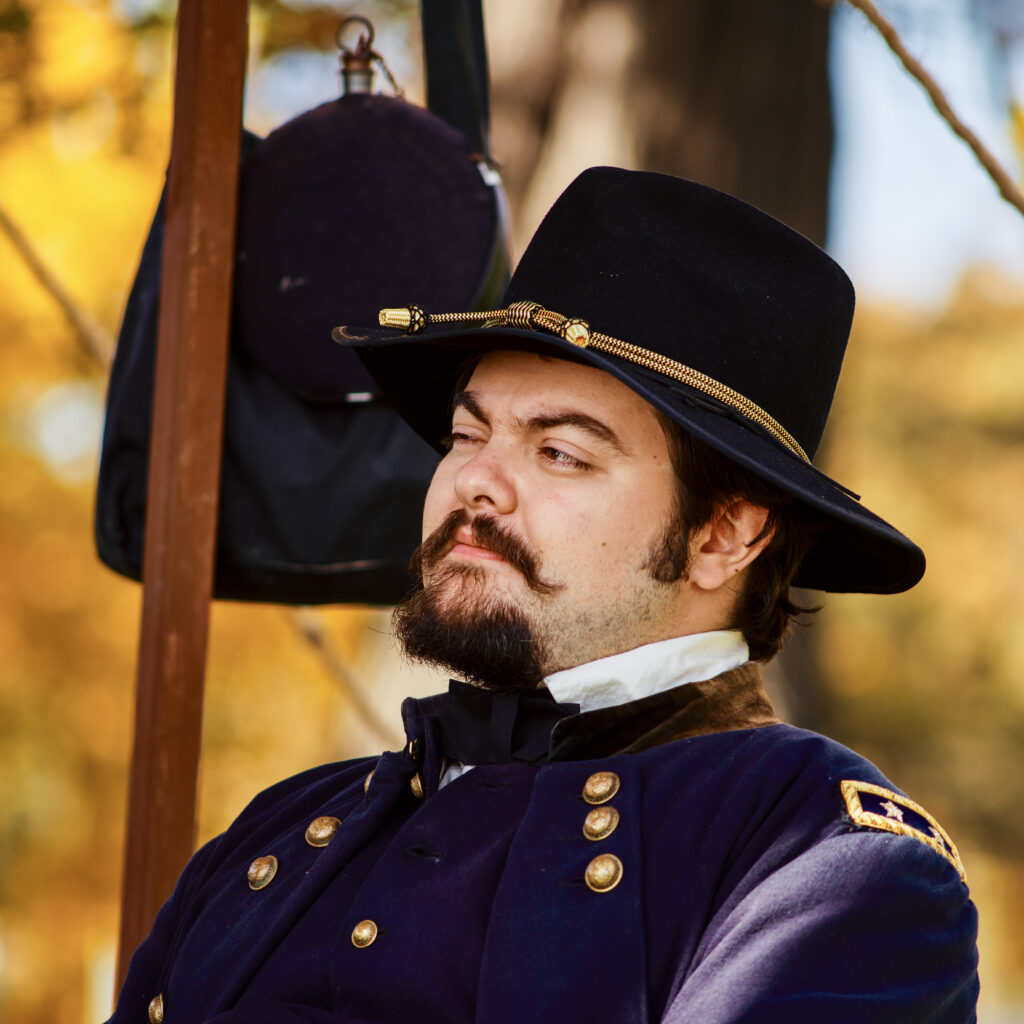
Photo Credit: Jared Tremper
The second person I portray is Winfield Scott Hancock. He was a career officer in the US Army. Hancock was born in 1824 and was from the greater Philadelphia area. After graduating from West Point in 1844, Hancock served in the Mexican War and at posts across the US. During the Civil War, he was a prominent officer in the Army of the Potomac and served in most major campaigns in the Eastern Theatre. Without him, the Union might have lost the Civil War. He was the longest serving commander of the Second Corps. In this role, he was pivotal in the Battle of Gettysburg. After the war, he served as commander of multiple departments and divisions. He secured the 1880 Democratic Presidential nomination, but lost narrowly to James Garfield. He remained in the Army until his death in 1886 from complications of diabetes. He is buried in Montgomery Cemetery in Norristown, PA.
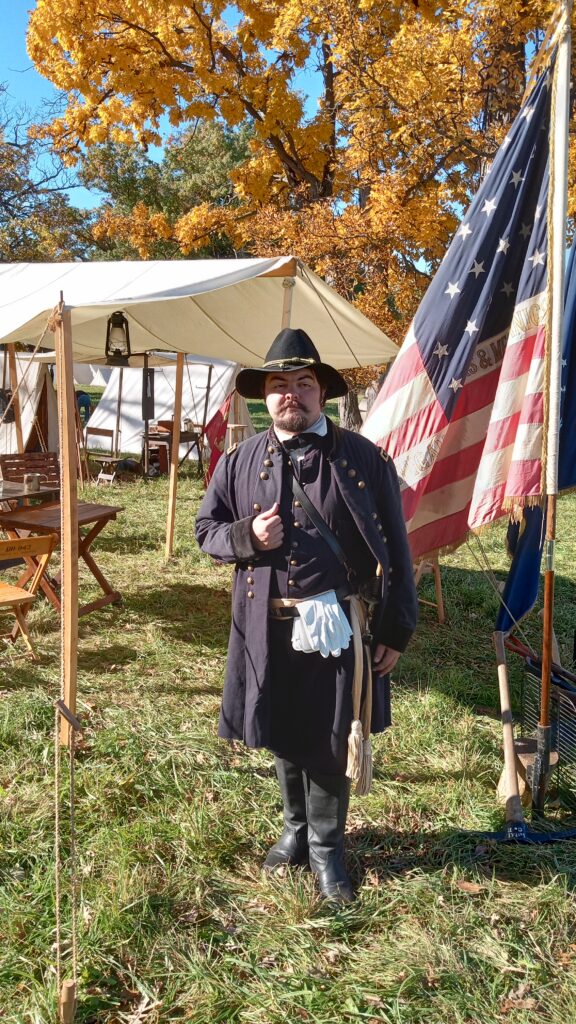
like this one in Hainesville, IL in October 2023.
Hancock is a favorite of mine. He allows me to talk about most major campaigns from the Civil War because he was involved with the Army of the Potomac from the beginning of the war. Hancock avoided politics as a military leader. Yet, he was a Democrat; this allows me to talk about the nuanced motivations for why Union soldiers fought the war. Lastly, many people have heard Hancock’s name, but do not know much about him. He is not a household name, like US Grant, Robert E. Lee, or George G. Meade; however, he was pivotal in his important position as commander of the Second Corps. By portraying him, I get to keep his story alive.
For more information, please Contact Me.
